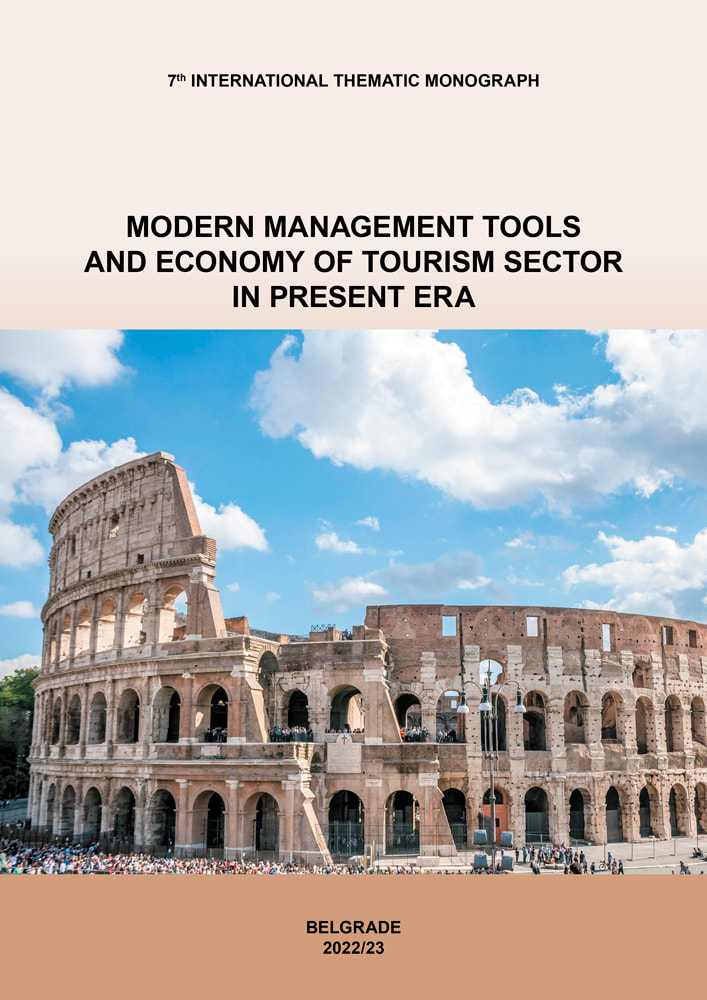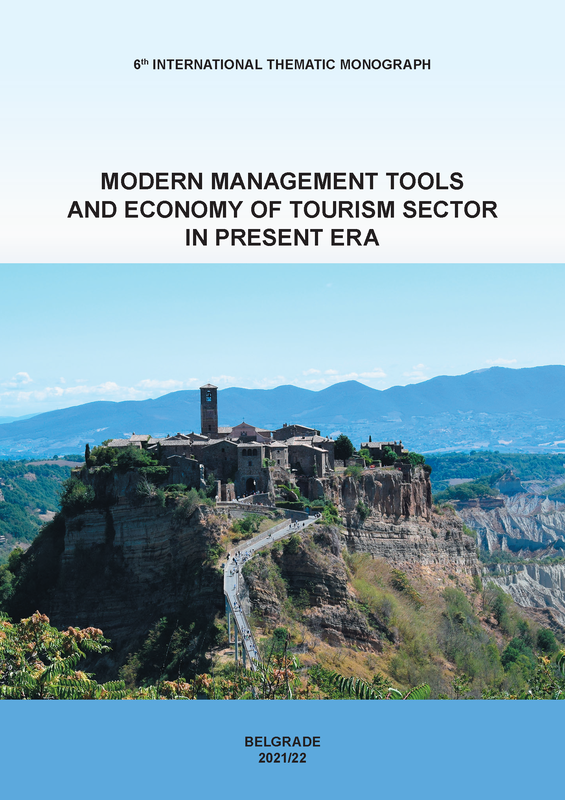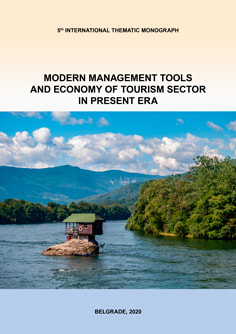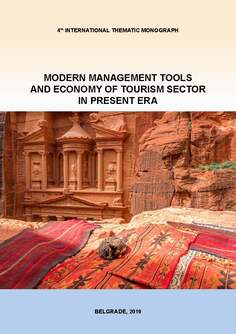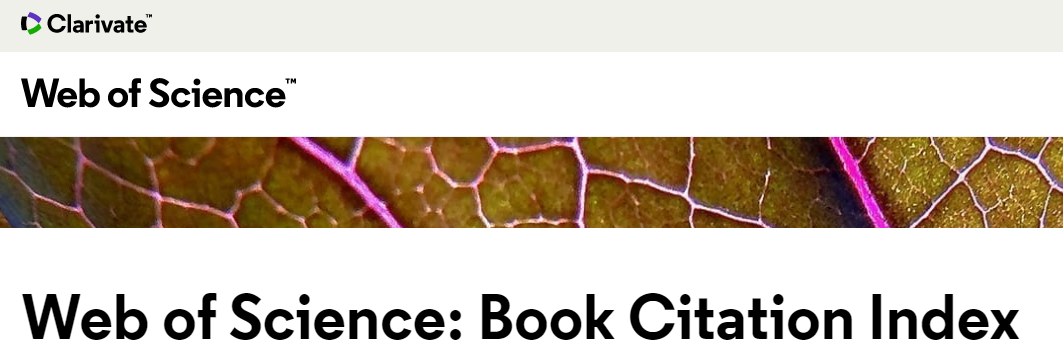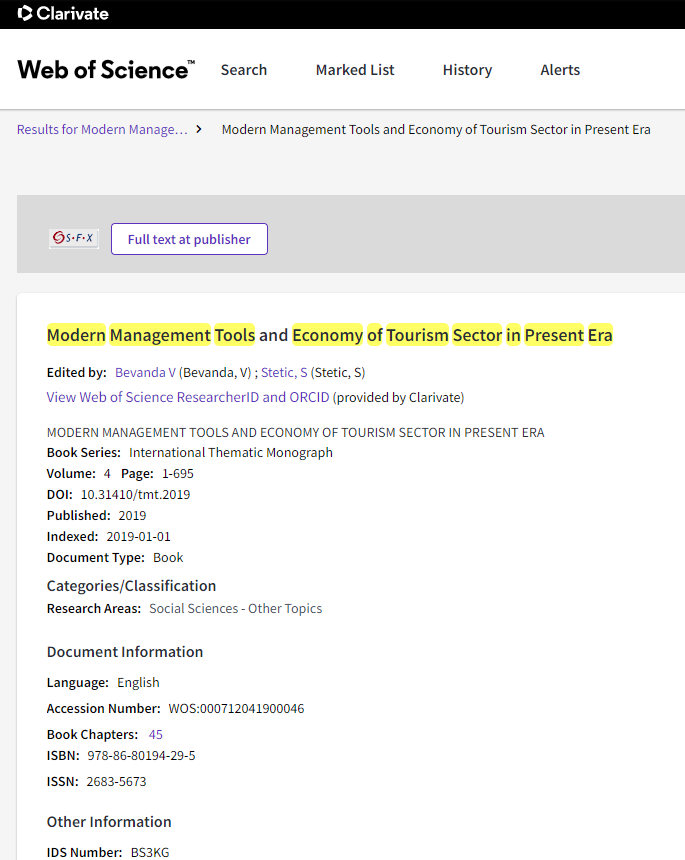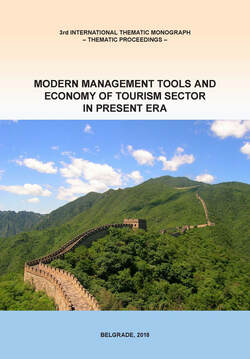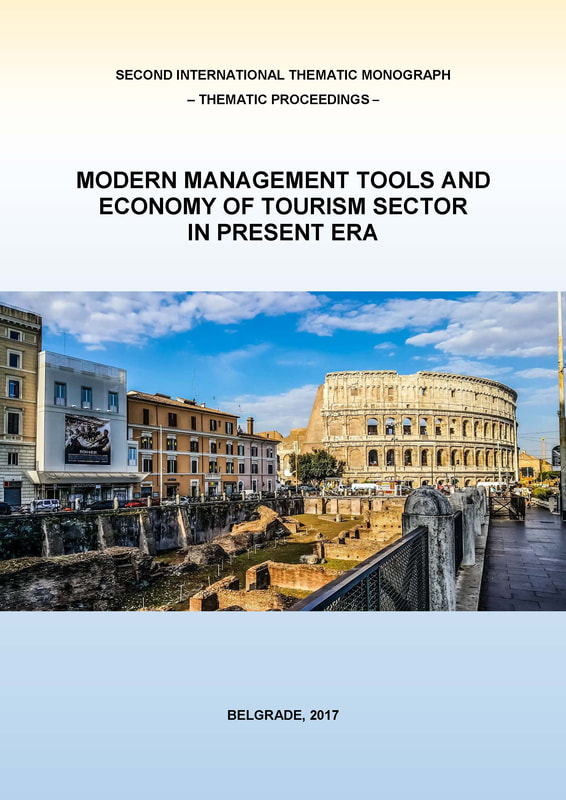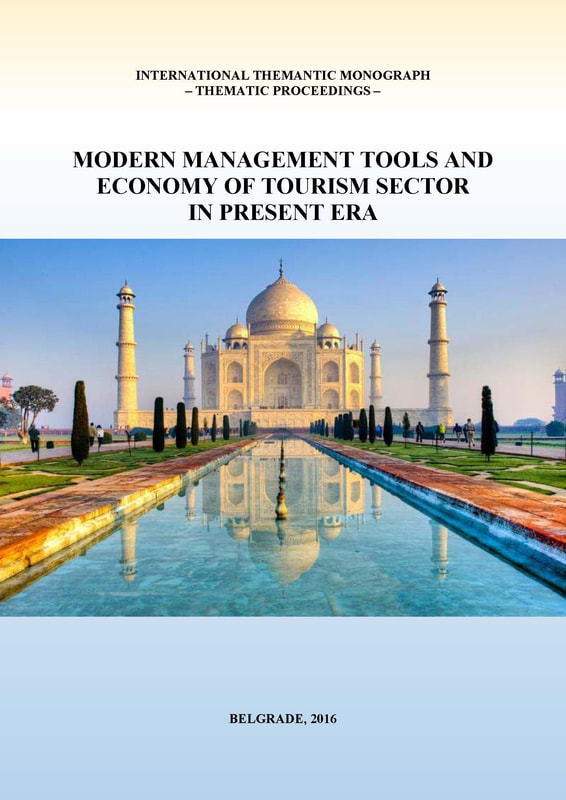|
Publish Book Chapter in
9th INTERNATIONAL THEMATIC MONOGRAPH Modern management tools and economy of tourism sector in present era 2024/2025 -M14 category, 5 points- Deadline for full chapter submission November 15, 2024 Publisher: Association of Economists and Managers of the Balkans - Udekom Balkans, Belgrade, Serbia.
Co-publishers: Institute of Economic Sciences, Belgrade, Serbia and Faculty of Tourism and Hospitality, Ohrid, North Macedonia. In the 9th International thematic monograph: "Modern management tools and economy of tourism sector in present era" will be published chapters which receive positive reviews by two international referees and which are by nature original scientific or review articles. Thematic monograph will be indexed with ISSN, ISBN, CIP and Cobiss.SR number. Also, it will be submitted to indexation and / or publication and / or the listing at the Web of Science (WOS) Book Citation Index, Scopus, EBSCO, CiteSeerX, ERA, ProQuest, Google Books, Google Scholar database and so on. All published chapters will have DOI number. One author may submit a maximum of two chapters, including co-authorship. Chapters should be written in English currently the global language of science. Volume of the text should be around 16 pages (30.000 characters no spaces).
Udekom Balkans takes concerns of plagiarism very seriously. All manuscripts are checked for plagiarized passages prior to being accepted for publication with iThenticate plagiarism software. Please ensure that all information taken from outside sources is properly cited and that all thoughts are composed in your own words. All instances of plagiarism will be immediately returned to the authors for correction and may be cause for removal of the manuscript from the publication.
Publication processing fee The publication fee should be paid per chapter. - 145 EUR* - Authors from academic and scientific-research institutions, business sector, government sector, public administration, chambers of commerce, postgraduate students, undergraduate students, unemployed and others *Publication processing fee includes: publication of one chapter, in the monograph, other publication and organizational costs. In case there are more than three coauthors, for each additional coauthor, 30 EUR will be added to the overall publication fee amount. If a full chapter exceeds 36.000 characters with no spaces (cca. 19 pages), each additional page will be subject to a charge of 20 EUR. Authors who do not follow the formatting instructions for chapter preparation may be charged an additional fee of 35 EUR. Pay with credit/debit card over PayPal (no registration needed). Attention: the costs of money transfer by bank wire transfer or PayPal are to be covered by the participants. For payments from Serbia (only for Serbian authors) publication fee is exactly 13.520,00 Serbian dinars (additional charges – if any, will be calculated based on the exchange rate of Serbian Dinar at the time of payment).
Peer reviewers of this publication receive 20% discount on registration fees for 4 international scientific conferences annually:
NEW Best Chapter Award The purpose of the Best Chapter Award is to recognize and promote quality contributions to academic research and writing among scholars and students who present and publish chapters in our international scientific monograph. BEST CHAPTER AWARD CANDIDATES 2022/2023
BEST CHAPTER AWARD Winners 2022/2023 Loredana Picciotto, Immacolata Ummarino, chapter title – Entrepreneurship of People with Disabilities and Accessible Tourism in the Non-Hotel Accommodation Sector in Italy BEST CHAPTER AWARD CANDIDATES 2021/2022
BEST CHAPTER AWARD Winners 2021/2022 Vera Mirović, Branimir Kalaš, Nataša Pavlović, chapter title – Is the tourism-led growth hypothesis valid for Višegrad group countries? BEST CHAPTER AWARD CANDIDATES 2020
BEST CHAPTER AWARD Winners 2020 Jani Bekő, Darja Boršič, ARE THE MEDITERRANEAN COUNTRIES WITH TOURISM PRICE INDICES IN THE PURCHASING POWER PARITY ZONE? More information may be found at the link below. Members of the Association of Economists and Managers of the Balkans may publish their chapters in the thematic monograph free of charge. Members of Udekom Balkans have the right to:
|
NEW Best Reviewer Awards
ITM 2022/2023 Best Reviewer Award Winners
ITM 2021/2022 Best Reviewer Award Winners
ITM 2020 Best Reviewer Award Winners
| ||||||||||||||||||||||||||||||||||||||||||||||||||||||||||||||||||||
Editors
|
dr Aleksandra Bradić-Martinović, principal research fellow
Institute of Economic Sciences, Belgrade, Serbia
Research interests: digital skills in the innovation economics, management in tourism |
|
Editorial Board
|
dr Snežana Štetić
full-time professor The College of Tourism
Belgrade, Serbia Research interests: tourist geography, tourism destination management, basics of management |
dr Dobrica Jovičić
full-time professor Faculty of Geography, Institute of Tourismology, Belgrade, Serbia
Research interests: tourism, tourism destination management, environment protection |
dr Ivo Županović
full-time professor Faculty of Business and Tourism Budva,
Montenegro Research interests: strategic destination management, yield management in tourism industry |
|
dr Darko Lacmanović
full time professor Faculty of Tourism Bar
Mediterranean University, Podgorica, Montenegro Research interests: hospitality management, tourism, marketing |
dr Zoran Todorović
professor Montenegro Business School
Montenegro Tourism School Mediterranean University, Montenegro Research interests: accounting, control, audit |
dr Elizabeta Mitreva
associate professor Faculty of Tourism and Business Logistics
University Goce Delcev, Stip, Macedonia Research interests: tourism, marketing, management |
|
dr Tatjana Boshkov
associate professor Faculty of Tourism and Business Logistics
University Goce Delcev, Stip, Macedonia Research interests: tourism, international finance, macroeconomics |
dr Snežana Besermenji
full-time professor Faculty of Sciences Novi Sad
Department of Geography, Tourism and Hotel Management, Serbia Research interests: social geography, culture tourism, tourism |
dr Marija Bratić
associate professor Faculty of Sciences and Mathematics, Department of Geography, University of Niš, Serbia
Research interests: cultural tourism, hospitality and tourism management |
|
dr Jasmina Gržinić
associate professor Faculty of Economics and Tourism "Dr. Mijo Mirkovic", Pula, Croatia
Research interests: tourism, sustainable tourism development |
|
dr Mladen Knežević
associate professor Faculty of Tourism
University of Maribor, Slovenia Research interests: tourism, management |
dr Irina Petrovska
associate professor Faculty of Tourism and Hospitality
Ohrid, Macedonia Research interests: tourism , hospitality, linguistics in tourism |
dr Tatjana Dimoska
associate professor Faculty of Tourism and Hospitality
Ohrid, Macedonia Research interests: tourism, sustainable tourism development, quality of life |
|
dr Kristina Košić
associate professor Faculty of Sciences Novi Sad
Department of Geography, Tourism and Hotel Management, Serbia Research interests: tourism, rural tourism, spa tourism |
dr Silvana Đurašević
associate professor, dean Faculty of Tourism Bar
Mediterranean University, Podgorica, Montenegro Research interests: marketing, management in tourism and media |
dr Anton Vorina
senior lecturer School of Sustainable Tourism ERUDIO
Ljubljana, Slovenia Research interests: human resource management, tourism, quality management, logistics |
|
dr Aljoša Vitasović
assistant professor Faculty of Economics and Tourism "Dr. Mijo Mirkovic", Pula, Croatia
Research interests: tourism, marketing, hospitality management |
dr Ana Tripković-Marković
assistant professor Faculty of Business and Tourism
Budva, Montenegro Research interests: tourism destination management, management of services, travel agencies |
dr Ivona Jovanović
assistant professor Faculty of tourism and hotel management Kotor, Montenegro
Research interests: linguistics in tourism |
|
dr sc. Iva Slivar
assistant professor Faculty of Economics and Tourism "Dr. Mijo Mirkovic", Pula, Croatia
Research interests: tourism, marketing, hospitality |
conference proceedings: international scientific business conference - limen - integrated politics of research and innovations
conference proceedings: international scientific conference - eraz - knowledge based sustainable economic development
conference proceedings: international scientific conference - eman
CONFERENCE PROCEEDINGS: INTERNATIONAL SCIENTIFIC CONFERENCE - ITEMA
Association of Economists and Managers of the Balkans - UdEkoM Balkan
179 Ustanicka St, 11000 Belgrade, Republic of Serbia
tel. +381 62 812 5779, E-mail: [email protected]
www.udekom.org.rs
179 Ustanicka St, 11000 Belgrade, Republic of Serbia
tel. +381 62 812 5779, E-mail: [email protected]
www.udekom.org.rs

